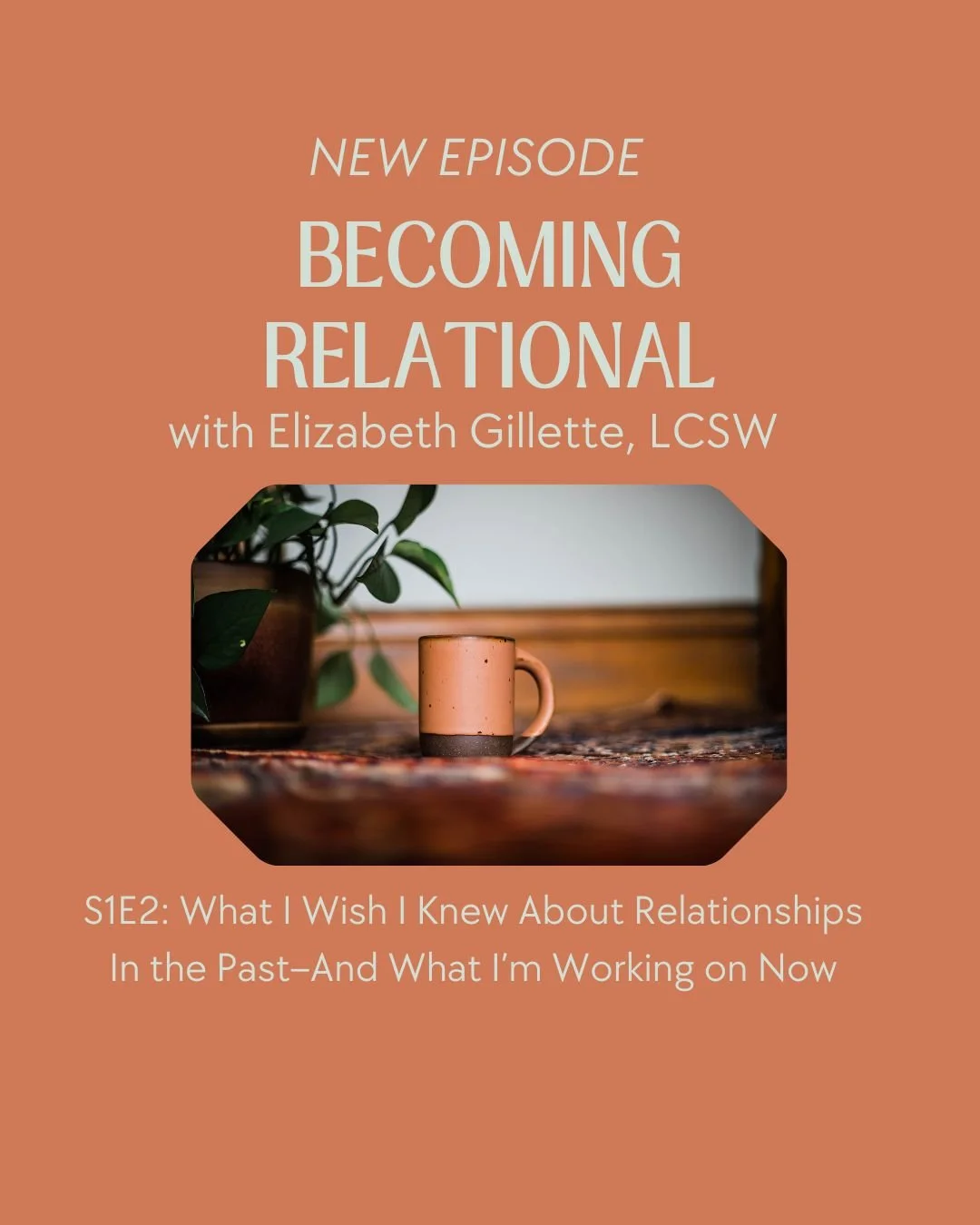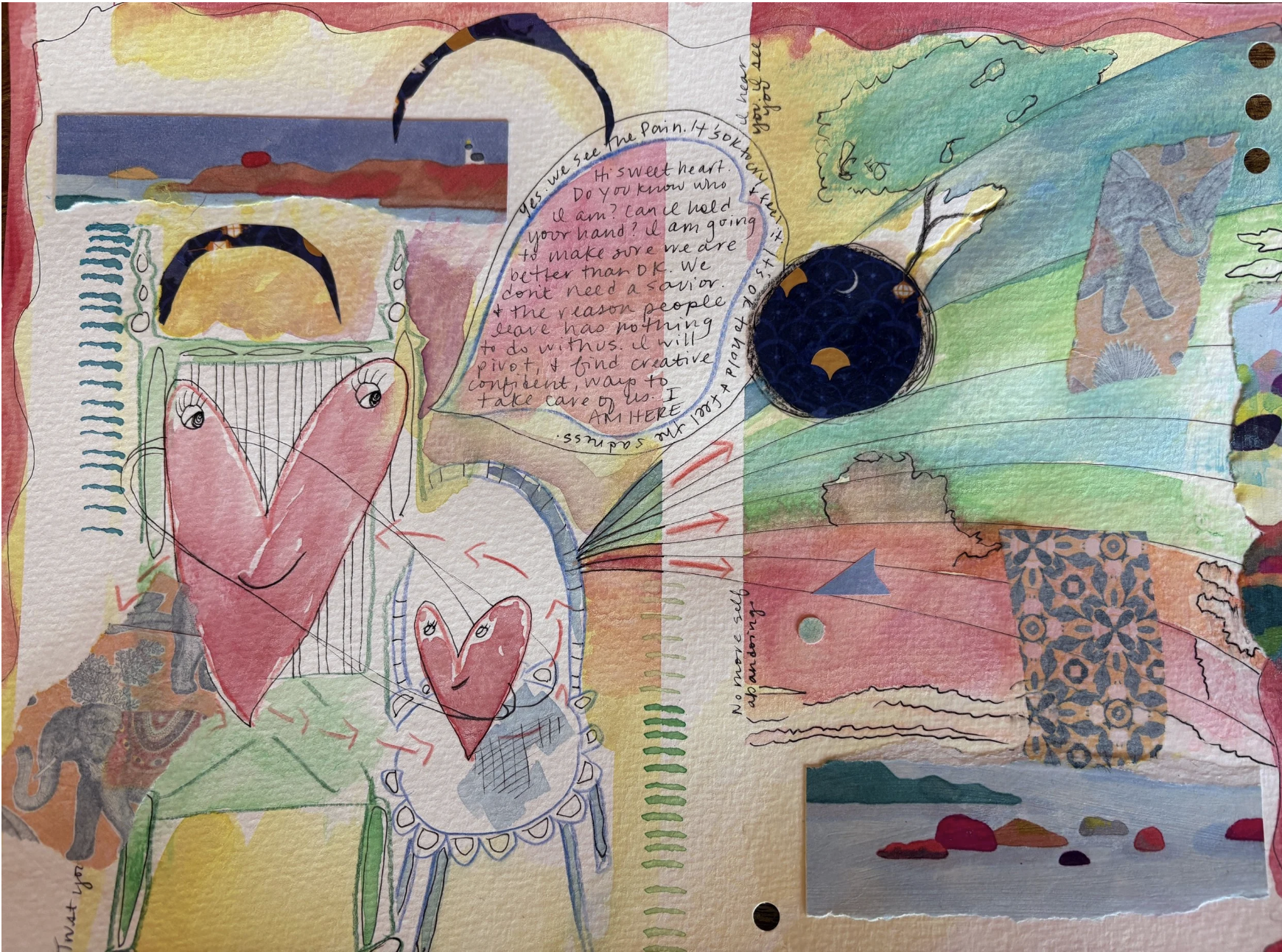Relationships, attachment styles, boundaries, and the hard-won lessons I've learned over the course of my relational life--that's what we're chatting about in Episode 2 of Becoming Relational with Elizabeth Gillette, LCSW.
Read MoreMy oldest son (who is almost 6 now, for those of you who have been with me a long time!) had a Halloween parade at school. Naturally, he dressed as Leonardo from the Ninja Turtles (and the rest of us were his turtle entourage on Halloween night). The night before the parade, he asked me, “Mom, what if someone else is dressed as a ninja turtle in the parade? Will you know it’s me?”
Read MoreWhat we are doing right now matters. Who we connect with, how we show up, the values that we choose to live—it matters so very much. The space we are creating in the Relational Nourishment Project to practice with one another and to get clear about what it is that we want to be different is so special. When we have each other, its more than enough. This project is truly a culmination of all that I’ve learned in my life about relationships, taking care of each other, being responsible to ourselves and our communities, and knowing ourselves deeply.
Read MoreI’ve learned in my fifteen years as a therapist that many people did not receive adequate relational nourishment. This happens for many reasons—structural and systemic, trauma and neglect. Sometimes we don’t even know that we didn’t receive this type of nourishment because we don’t have any other perspective or experience; it’s just the reality. But what I’ve also learned is that relational nourishment can be cultivated at any point in our lives if we know what to look for and how to do it.
Read MoreFolks with insecure attachment styles have a skill in common that serves them in many capacities. It’s one that can show up in every type of relationship and tricks us into feeling like we are safe—by blending in, by being passive, by not drawing too much attention to ourselves. And it’s a behavior pattern that comes back to bite us SO HARD that once we stop doing it, life can change pretty dramatically and it can take some time to get ourselves back on track and feeling connected again.
Read MoreSince the start of the year, I have been really leaning into exploring the parts of my personality that I would rather not look at—the parts I’m shameful or embarrassed about, and the ones that I try to hide or keep at bay but always, always show up at some point in my relationships.
Read MoreI remember so many times in my early romantic relationships (and honestly, some adult friendships) when I truly did ignore all the warnings, some of them as blatant as “I do not want to be in a relationship right now.”
Read MoreI want to talk about anxious attachment behaviors, impulses, and tendencies. I remember viscerally how it feels to be in relationship with someone who leans toward the avoidant end of the relational spectrum as a person who has the anxious style—and I would describe it as torturous at times, to be completely honest.
Read MoreOur environment is one of constant distraction, overwhelm, dysregulation and the desire to be almost anywhere that you are not currently. What if our work is to learn to channel those feelings into what matters most and let go of the rest?
Read MoreI’ve received a few strongly-worded emails about my offerings (including the fact that Monica and I are including a bonus astrology reading in our HELD group coaching program, because astrology is not "evidence-based"), and I wanted to address it directly because I feel like it connects to some greater issues that I see at play in the therapy/healing world currently.
Read MoreIn this eclipse time, where the things we don’t need are falling away left and right, I want to offer some permission slips for you:
Read More












